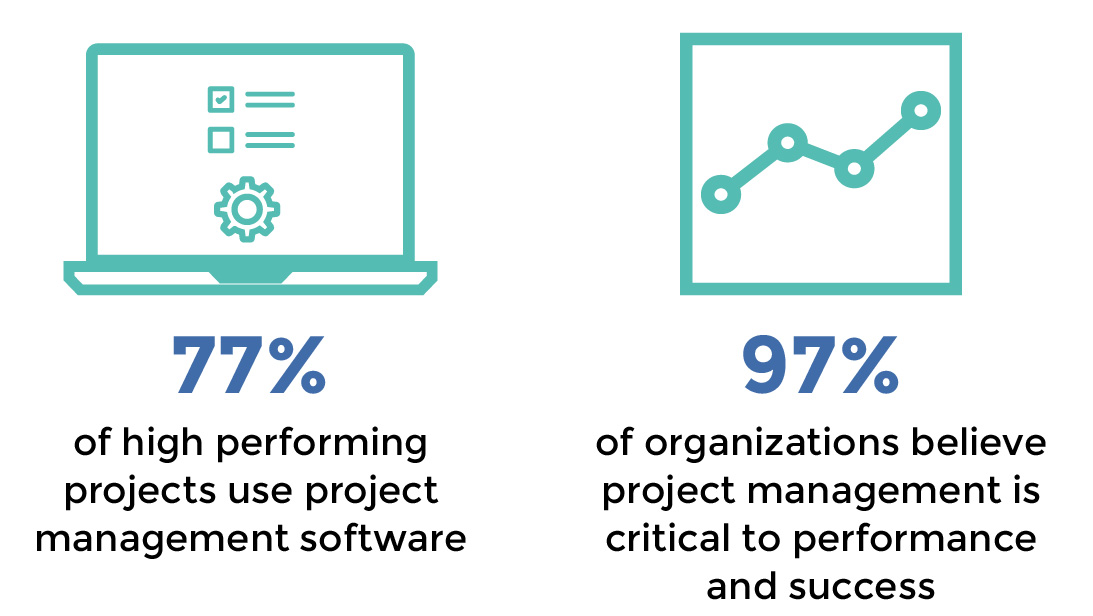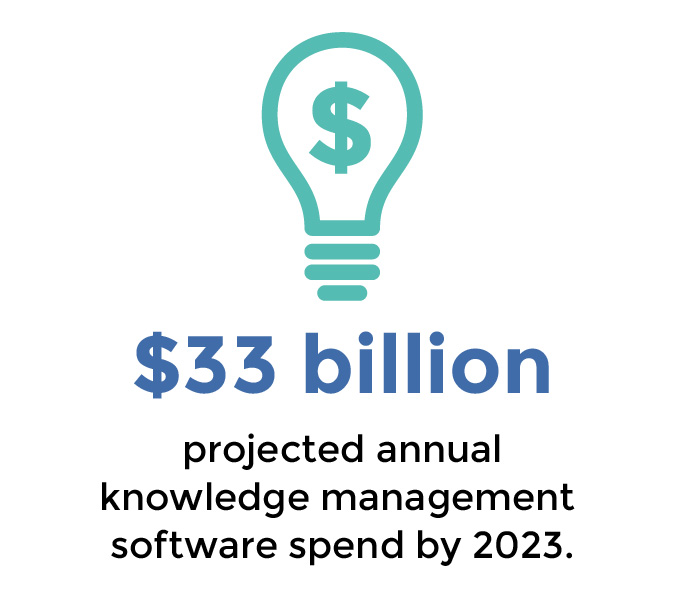For many businesses, responding to requests for proposals (RFPs) is a regular occurrence. Every RFP is a sales opportunity that can contribute to business growth. The success of each proposal hinges on its execution. Accordingly, the practice of proposal management makes a significant impact on the final outcome.
If you respond to RFPs, you already know that proposal management requires a diverse set of skills. Identifying and honing each skill can quickly help improve your proposal process and your win rate.
In this post, we’ll explore what proposal management is, who is responsible for it, the key skills it requires and resources to help along the way. With this information, you’ll be more efficient, effective and successful as you manage the proposal process.
Proposal management defined
Before we jump into the skills required, let’s quickly define what proposal management is. Proposal management is the process of overseeing and facilitating the completion of a proposal. It includes planning the timeline, hitting send on the final proposal submission and everything in between.
Who is responsible?
Large organizations typically have a dedicated proposal team. The proposal department is lead by a proposal manager. They work with a team of proposal coordinators, graphic designers and writers. Their sole focus is producing winning proposals.
For small and mid-sized businesses, hiring a proposal manager is a luxury that may not be in the budget. To fill the gap, proposal management duties may fall to an individual in a variety of departments. In these situations, the person responsible for proposal management may simply be taking on the role out of necessity. However, it’s not their primary job function. Who the RFP is assigned to and why varies from one business to another.
Common roles in proposal management
- Salesperson — They have the best insights and understanding of the potential client’s needs, they provide context that will help differentiate the proposal from others
- Marketing team member — They have deep knowledge of the business as well as the competitive market and can present a proposal that looks professional and stands out
- Business operations — They have close relationships with many different departments, can coordinate with subject matter experts and have visibility to big-picture business objectives
No matter the role, if you find yourself responsible for proposal management you’ll benefit from brushing up on several key skills. Explore these areas to successfully manage the proposal process and save time.
3 key skills for successful proposal management
1. Project management
Project management is the core of an efficient and effective proposal process. The Project Management Institute (PMI) defines project management as “…the application of knowledge, skills, tools, and techniques to project activities to meet the project requirements.” If you have previously managed a proposal you can probably look back at the process you used and see how it might overlap with this definition. Whether you knew it at the time or not, you were project managing.
The stats about project management are impressive. An estimated 77 percent of high performing projects use project management software. While 97 percent of organizations believe that project management is critical to business performance and organizational success. Apply project management principles to proposal management to see big benefits.

Project management for proposals can be broken down into five steps:
- Initiate
Receive and evaluate the RFP request and conduct a go/no go analysis - Plan
Outline the proposal process and all of the involved contributors, reviewers and stakeholders - Execute
Find and reuse previous RFP answers and send updates and new questions to subject matter experts - Monitor and control
Track response progress, follow up for approvals, update stakeholders as needed - Close
Review and compile all elements, seek final approval and submit the completed proposal
Proposal management requires a great deal of careful planning and facilitation. Coordinating between half a dozen departments, making sure no details are missed and trying to meet a deadline can be overwhelming. But, using the five steps of project management can help make the proposal process more manageable.
Project management resources:
Managing smaller and medium-sized projects — Ebook by Dr. Jim Young, PMP
This ebook is full of great insights that will help build your project management skills. It includes roles and responsibilities, terminology, templates and more. It’s free and well worth your time.
Projectified — Podcast produced by PMI
This podcast is perfect for brushing up your skills and learning the latest trends in project management. With most episodes clocking in at under 20 minutes, it’s a great way to spend your daily commute.
2. Knowledge management
Chances are you’re not the first person at your company to be tasked with responding to an RFP. Every proposal, past and future, is a significant business investment. The detailed research, business insights and skillful storytelling that go into a proposal represent hours of work. But what happens to that knowledge once the proposal has been submitted? Does it just get filed away to collect dust?
The practice of knowledge management (KM) keeps valuable information from going to waste. Author, speaker and KM pioneer, Tom Davenport, offered this succinct summary of knowledge management, “Knowledge Management is the process of capturing, distributing, and effectively using knowledge.” Davenport gave that definition in 1994 and the practice of knowledge management has grown steadily since. The Market Research Future reports that global investment in knowledge management software will hit $33 billion by 2023.

Applying knowledge management to your proposal content can save hours and days of work. for proposal managers and SMEs alike. Subject matter experts trust you to ask the right questions, save that knowledge and use it again. One sign that proposal management is being done well is that over time, SMEs will need to write fewer and fewer new answers. As the knowledge library grows it saves even more time as common questions and answers are tagged, categorized and continually updated. Knowledge management allows SMEs to focus on their day-to-day work because proposal content is easy to find and reuse.
In addition to improving efficiency, KM protects your business from loss. For example, if one of your key stakeholders leaves the business, they take their knowledge with them — unless you’ve retained it in the knowledge library. Then, when you’re ready to onboard new team members, they can find crucial information quickly.
Knowledge management resources:
RFP360 for knowledge management — RFP management software
This cloud-based software is designed specifically for proposal knowledge management. The platform makes it easy to collect, categorize, collaborate on and search for RFP answers within the knowledge library. It also captures data about who authored the question, when it was last updated and how many times it’s been used. RFP360 integrates with CRM and other systems. It also offers knowledge extensions. The extensions enable access to the knowledge library directly from Chrome, Firefox and the Microsoft Suite.
Five tenets of corporate knowledge management — Infographic by the University of Southern California
From benefits to best practices, this infographic offers a high-level view of knowledge management. The ideas can easily be applied to proposal knowledge management.
3. Content editing
The best proposals tell a story. They are engaging, interesting and they clearly express why partnering with your business will benefit the buyer. Unlike a traditional story that has one author, a proposal has many. Unifying the perspectives and voices of all your subject matter experts into one cohesive narrative is a challenge. Excellent proofreading, editing and writing skills are critical to proposal management.
Writing compelling proposal content isn’t easy. You’ll find that while your SMEs all contribute vital expertise, they may communicate it in very different ways. Some people will relay the facts in the most concise way possible, while others may add unnecessary detail that could confuse the reader. Merely copying and pasting RFP answers is risky. It can create an unprofessional, disjointed narrative with an inconsistent style and tone.
The Association of Proposal Management Professionals (APMP) offers a great editing checklist. In general, you’ll want to carefully review each answer for three things:
- Content
Does it answer the question? Does it provide the required information in the requested style? - Tone
Does it sound and look like your brand? Does the tone sound consistent throughout the proposal? - Grammar
Is everything formatted, spelled, capitalized and punctuated correctly?
In a proposal with hundreds of questions, reviewing each question may seem overwhelming. However, this is where the value of your knowledge library comes into play again. If you consistently add your RFP answers to the library, you’ll have a head start with proposal content you’ve already edited. You can simply customize the answer to the customer and move forward.
Quick tips for proposal content editing:
- Write in active voice as much as possible — it creates a more confident and knowledgeable tone
- Create a style sheet to share with SMEs like this one: APMP style sheet template
- Strike a balance to make sure your content isn’t too dry, but also not too fluffy and verbose
- Format the proposal in a way that makes it visually approachable and scannable, include bullet points where possible
- Include the proposal cover letter and any other standard documentation in your content editing review
Content editing resources:
LinkedIn Learning — Online video courses
These quick courses are great for brushing up on grammar, copy editing, identifying active voice and more. There are even quick videos that cover proposals if you’re looking for even more tips and tricks.
Online style and grammar tools:
Grammarly — Available as a free web app or a Chrome extension, Grammarly will offer suggestions to fix spelling and grammatical errors
ReadablePro — With Readable, you can quickly check your proposal’s readability, tone and sentiment. It will also identify passive voice, long sentences and cliches to avoid
Winning skills
Proposal management is a balancing act and time to focus on learning new skills is short. However, simply improving your awareness of the skills proposal management requires will help you create more effective proposals and win more business. Luckily, project management, knowledge management and content editing skills are almost universally useful. So, spending time improving them will serve you well no matter how many proposals you manage.
